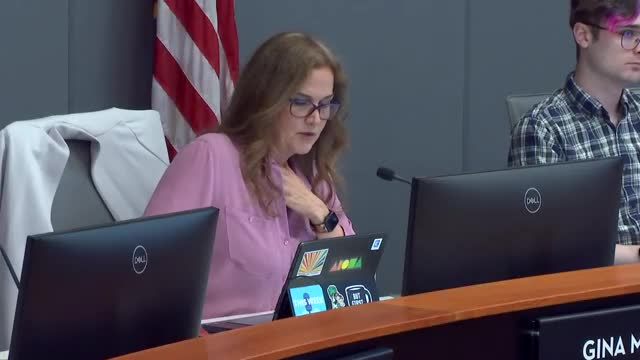Kirkland commissioners discuss demand and construction challenges for co-living housing
July 13, 2025 | Kirkland, King County, Washington
This article was created by AI summarizing key points discussed. AI makes mistakes, so for full details and context, please refer to the video of the full meeting. Please report any errors so we can fix them. Report an error »

The Kirkland Planning Commission convened on July 10, 2025, to discuss the pressing need for diverse housing options in the community, particularly focusing on co-living arrangements. The conversation highlighted a growing demand for affordable housing solutions, especially for families and individuals seeking community-oriented living spaces.
Commissioners expressed concerns about the current outreach efforts, noting that feedback primarily comes from middle- and high-income residents, which may not accurately represent the broader demographics of Kirkland. This skewed input raises questions about the actual demand for co-living units, which are currently underrepresented in the area compared to Seattle, where such housing options are more prevalent.
The commission noted that while Kirkland has a high occupancy rate for existing rental units, the lack of co-living spaces could be a missed opportunity. With no co-living units in neighboring cities like Bellevue and Bothell, Kirkland has the potential to fill this gap. However, building such units poses challenges due to higher construction costs and regulatory hurdles.
Discussions also touched on the importance of maintaining affordability in any new developments. Some commissioners argued for the necessity of affordability requirements to ensure that even higher-end co-living spaces remain accessible to a wider range of residents. Others suggested that the inherent design of co-living units might already make them more affordable, thus questioning the need for strict affordability mandates.
The meeting also explored the demographic diversity of potential co-living residents, revealing that these units could serve not only young professionals but also older adults seeking community and companionship. The commissioners acknowledged that many residents currently live in informal co-living situations, sharing homes without formal regulation, which indicates a latent demand for more structured options.
As the meeting concluded, the commissioners agreed on the need for further outreach to gauge community interest in co-living arrangements and to explore the possibility of developing these units in walkable areas, which could benefit various demographics, including seniors and individuals with disabilities. The discussions underscored a commitment to addressing the housing crisis in Kirkland by fostering innovative living solutions that promote community and affordability.
Commissioners expressed concerns about the current outreach efforts, noting that feedback primarily comes from middle- and high-income residents, which may not accurately represent the broader demographics of Kirkland. This skewed input raises questions about the actual demand for co-living units, which are currently underrepresented in the area compared to Seattle, where such housing options are more prevalent.
The commission noted that while Kirkland has a high occupancy rate for existing rental units, the lack of co-living spaces could be a missed opportunity. With no co-living units in neighboring cities like Bellevue and Bothell, Kirkland has the potential to fill this gap. However, building such units poses challenges due to higher construction costs and regulatory hurdles.
Discussions also touched on the importance of maintaining affordability in any new developments. Some commissioners argued for the necessity of affordability requirements to ensure that even higher-end co-living spaces remain accessible to a wider range of residents. Others suggested that the inherent design of co-living units might already make them more affordable, thus questioning the need for strict affordability mandates.
The meeting also explored the demographic diversity of potential co-living residents, revealing that these units could serve not only young professionals but also older adults seeking community and companionship. The commissioners acknowledged that many residents currently live in informal co-living situations, sharing homes without formal regulation, which indicates a latent demand for more structured options.
As the meeting concluded, the commissioners agreed on the need for further outreach to gauge community interest in co-living arrangements and to explore the possibility of developing these units in walkable areas, which could benefit various demographics, including seniors and individuals with disabilities. The discussions underscored a commitment to addressing the housing crisis in Kirkland by fostering innovative living solutions that promote community and affordability.
View full meeting
This article is based on a recent meeting—watch the full video and explore the complete transcript for deeper insights into the discussion.
View full meeting
